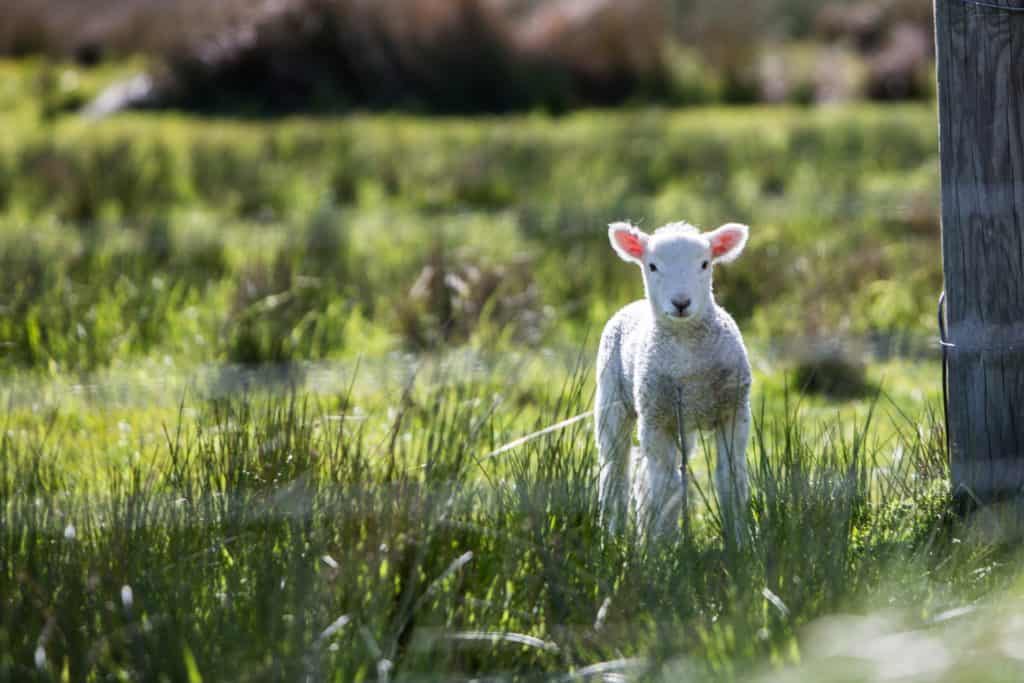
Since the fall of humanity, death is a natural part of life in a sin-damaged world. But it was never part of God’s ideal plan.
Even with the reality that everyone dies, the loss of a loved one just feels so wrong. So unfair. We often express these feelings in phrases like, “she was taken too soon,” or “he had so much more life ahead of him.”
So why is death part of reality? Where did it come from? And why do some “bad” people live long lives, while some “good” people die young?
Let’s look to the Bible for answers. We’ll learn more about:
- Death in relation to the “formula” for life
- The concept of death introduced in the Garden of Eden
- The first murder and its consequences
- Does death have a purpose?
- God’s “cure” for eternal death
Like so many of life’s toughest questions, God’s word holds the key to understanding exactly what death is and why we’re surrounded by it every day of our lives. By combing through the Bible, by understanding death’s origins and its purpose, we can also learn about God’s plan to conquer death, and to save each of us from eternal loss.

Death and the formula for life
Before we can discuss where death came from and how it started, we’ll need to have a concrete idea of what it is. Is death some sort of force or event, or is it a sentient being with a hood and scythe like the “destroying angel” God sometimes sends to bring punishment (2 Samuel 24:16) or to fight against Israel’s enemies (2 Kings 19:35)?
Perhaps the best way to understand what death is involves understanding what it’s not. If we understand how life works and where it comes from, then we should have a better idea of what’s missing once we die. And the best way to understand how life works is to know how it began.
That brings us to Genesis, the starting point for all life on earth. God had just begun the sixth day of creating the planet. He’d already spoken light, sky, land, and vegetation into being and had populated the planet with fish, birds, and animals. But something was still missing. Something that required a more personal touch.
“And the Lord God formed man of the dust of the ground, and breathed into his nostrils the breath of life; and man became a living being” (Genesis 2:7 NKJV).
This act of creation is more personal and intimate than anything else God had yet done. The sea and land and animals had been spoken into being. Now He reached down into the dirt and molded the first man with His own hands, like a potter with clay. And when the man was fully formed, God breathed life into the body and the man became alive.
So, Genesis presents us with the basic formula for life:
Dust from the ground + God-given breath of life = a living being.
This formula makes sense from both a spiritual and scientific perspective. If you took apart the basic components that make up the human body, you’d find we are essentially carbon based, made up of the same stuff you might sweep out of your chimney.

But a handful of dust and chimney soot doesn’t feel emotions. A handful of chemicals doesn’t have the capacity to reason, hate, or love. It doesn’t have a personality. That’s where God comes in. The breath of life He gave to the first man is the same thing that allows us to live, think, and feel.
This is the basic formula for life. When dust from the earth is given a spark of life by God, you get a living being. And what happens when you take that spark away? Well, the formula reverses itself. The thing that was a living being reverts back to dust, decomposing into the earth, just as the psalmist said:
“You hide Your face, they are troubled; You take away their breath, they die and return to their dust” (Psalm 104:29 NKJV).
That, in a nutshell, is what death is.
It’s a loss of the life-giving spark God created us with. Once that spark is lost, we revert back to mere chemical components, unable to think or feel. King Solomon understood this when he wrote:
“For the living know that they will die, but the dead know nothing, and they have no more reward, for the memory of them is forgotten. Their love and their hate and their envy have already perished, and forever they have no more share in all that is done under the sun” (Ecclesiastes 9:5-6 ESV).
It’s not the prettiest picture of the afterlife. Death isn’t a ticket straight to heaven to be with Jesus, but a thoughtless, emotionless, unconscious state. Thankfully, we have God’s promise of the resurrection to hold on to, otherwise, death would be a bleak picture indeed.
Why would a loving God allow this sort of loss? If death wasn’t a part of His plan for humanity, why would he even allow it to exist?
That is a very important question, and to answer it, we’ll have to go back to the Garden of Eden, the birthplace not only of life, but of death as well.

Death introduced in the Garden of Eden
When most of us try to picture the Garden of Eden, we conjure up an image of peace, perfection and idyllic beauty. The last place where death would come to mind. And yet, that is where death began, with our first parents in the garden God built for them.
The story begins in Genesis 3, right after the author relates how God formed Adam and Eve and made them rulers over all the animals. When God placed Adam and Eve in the garden, he gave them specific instructions. He told Adam:
“You may surely eat of every tree of the garden, but of the tree of the knowledge of good and evil you shall not eat, for in the day that you eat of it you shall surely die” (Genesis 2:16-17 ESV).
Seems straightforward enough. For some time, Adam and Eve kept God’s commands faithfully. They tended the garden, ruled fairly over the animals, and ate from the Tree of Life. Every day, God would come to walk and talk with them, enjoying the company of the magnificent people He’d created. It was paradise.
Then one day, while passing by the Tree of the Knowledge of Good and Evil, Eve looked up and saw a beautiful serpent coiled among the branches. Suddenly, the serpent spoke to her.
“And he said to the woman, “Has God indeed said, ‘You shall not eat of every tree of the garden’?”
And the woman said to the serpent, “We may eat the fruit of the trees of the garden; but of the fruit of the tree which is in the midst of the garden, God has said, ‘You shall not eat it, nor shall you touch it, lest you die.’ ”
Then the serpent said to the woman, “You will not surely die. For God knows that in the day you eat of it your eyes will be opened, and you will be like God, knowing good and evil.”
So when the woman saw that the tree was good for food, that it was pleasant to the eyes, and a tree desirable to make one wise, she took of its fruit and ate. She also gave to her husband with her, and he ate” (Genesis 3:1-6 NKJV).

And that was humanity’s first act of sin, an act that has come to cost each of us a lifetime’s worth of pain and heartbreak. It represented what humanity does with its free choice.
The consequences of Adam and Eve’s disobedience took effect immediately. As soon as they ate the fruit, the Bible says their “eyes were opened.” They saw that they were naked and rushed to make garments for themselves out of fig leaves.
This had never been a problem before. When God first created them, they’d been perfect, pure and innocent. But when they ate the fruit, they saw clearly the mistake they’d made. For the first time, they had something to be ashamed of. Something to hide.
And hide they did. They heard God approaching, God who had always walked and talked with them openly, God who was their creator and friend, and they ran, hiding themselves in the garden. God knew where they were and called out to them. Knowing he couldn’t hide forever, Adam stepped out to speak to God.
“And he said, “I heard the sound of you in the garden, and I was afraid, because I was naked, and I hid myself.”
He said, “Who told you that you were naked? Have you eaten of the tree of which I commanded you not to eat?”
The man said, “The woman whom you gave to be with me, she gave me fruit of the tree, and I ate.”
Then the Lord God said to the woman, “What is this that you have done?”
The woman said, “The serpent deceived me, and I ate,” (Genesis 3:10-13).
Gone were the days of Adam and Eve’s innocence, when they lived in harmony and could talk to God face to face. Now they were acting like guilty convicts, hiding from the law and blaming each other when they got caught.
Their act of rebellion hadn’t just damaged their relationship with God, but with each other as well. Whereas before they’d had a relationship of perfect love, now they were busy pinning the blame on each other to save their own skin.
God cuts the accusations short and pronounces punishment. Adam and Eve turned their back on Him and chose to disobey His laws, in favor of the temptation of the unknown. Not only that, but they had given into selfish impulses, reaching out for something they knew was not theirs to take because it was desirable, because it would make them “like God.”

This selfishness, this disregard for God’s commands, was the beginning of sin. It took hold of Adam and Eve and corrupted them almost immediately, from the selfishness of disobeying God and stealing from the tree to the selfishness of cowering in fear and putting the blame on others when they were caught.
That is the essence of sin—putting one’s self before others and before God. And for their sin, they were to be cast out of the garden of Eden.
“And the Lord God made for Adam and for his wife garments of skins and clothed them.
Then the Lord God said, “Behold, the man has become like one of us in knowing good and evil. Now, lest he reach out his hand and take also of the tree of life and eat, and live forever—” therefore the Lord God sent him out from the garden of Eden to work the ground from which he was taken. He drove out the man, and at the east of the garden of Eden he placed the cherubim and a flaming sword that turned every way to guard the way to the tree of life” (Genesis 3:21-24 ESV).
And so God prepared the first humans for life outside in a harsh, new world. He had to use animal skins to clothe them, replacing the fig leaves they’d tried to use. Adam and Eve had never seen anything die before. Before that day, death hadn’t even existed to them. But now they watched as God killed some of their beloved animals so they might have clothes to hide their shame.
You can imagine the pain and regret that filled the first two human beings as they were cast out of their garden home and led out into a strange, unknown world which had already started to feel the effects of sin.
But, hard as Adam and Eve’s suffering must have been those first few days after leaving Eden, the worst was yet to come. Day by day, they realized just how heavy the price of sin was. They began to understand how much they’d given up by turning their back on God and His laws. But nothing could have prepared them for what happened next.

The first murder—man takes another man’s life
When God cast Adam and Eve out of the Garden of Eden, He didn’t just kick them into the grass and walk away. He didn’t leave them hopeless. Before the first human beings fully understood what sin actually was, fully understood the life they had signed up for by choosing the knowledge of both good and evil, God already had a plan to combat it. He had a plan to redeem His children and bring them back home.
He told Eve that the children she would bear will begin an important line of descendants. From this lineage, there would come One who would put an end to sin once and for all.
That promise of a coming savior kept Adam and Eve going, looking forward to the day they might be let back into Eden.
When Eve bore her first son, the first child ever born to the human race, she named him Cain. Soon after, she gave birth to another son who she named Abel. Adam and Eve raised their sons well and taught them all about God, believing that one of their two boys might be the descendant God had promised, the one who would destroy sin and allow them back into Eden.
They knew God’s penalty against sin wouldn’t last forever. No doubt they hoped the solution to sin might be found in their lifetime. But they soon found out how wrong they were when a terrible crime fell upon the young human family: the world’s first murder.
Cain and Abel were growing older, and as they grew older, the two brothers were finding their own skills and abilities. Cain was good at tending the land, bringing forth fruits and vegetables. Abel became a skilled shepherd with many flocks of sheep. The time came for the two brothers to present their offerings to the Lord. Cain brought forth the best of the fruits he had grown and Abel brought some of the choicest animals from his flock.
“And the Lord respected Abel and his offering, but He did not respect Cain and his offering. And Cain was very angry, and his countenance fell.
So the Lord said to Cain, ‘Why are you angry? And why has your countenance fallen? If you do well, will you not be accepted? And if you do not do well, sin lies at the door. And its desire is for you, but you should rule over it’” (Genesis 4:4-7, NKJV).

These sacrifices to God were supposed to include the killing of a lamb as a symbol of how an innocent Savior would one day give Himself to save the human race. Cain chose instead to bring the fruits of his labor, albeit the best.
God warned Cain that he hadn’t done what was asked, and what would happen if he held onto his anger and resentment. But, just like his parents in the Garden of Eden, Cain ignored God’s warning. He let his emotions fester and boil inside of him.
One day he called Abel out into the field to talk with him. As they were talking, the venomous anger inside of Cain began to take over. He kept talking, getting angrier and angrier, until he finally grabbed hold of his brother, struck him to the ground, and killed him (Genesis 4:8).
There it was, the world’s first murder. A man striking down his own brother in a blind rage. God knew of the crime as soon as it was committed, and Cain began to fear for his own life. He figured whoever found out about the murder would instantly kill him for what he’d done to his brother. So God sent him into exile in a far away land, never to return.
You can imagine the heartbreak Adam and Eve went through. In one fateful day, they’d lost both their sons. It wasn’t until that day they realized how terrible death really was. They saw the bitter end it gave to a human life. Now they truly understood the horrible thing they’d unleashed upon the world by turning their back on God.
The early chapters of Genesis clearly lay out for us God’s plan for a perfect world, Adam and Eve’s rebellion, and the terrible consequences which we are still feeling today. Everywhere we look, there is evidence of the damage sin’s done to the world. There’s not one person on earth who hasn’t had some experience with death, and it is a known fact we all will die at some point.
But the question remains. Does death have a purpose? Was it just an arbitrary curse set on the human race for breaking God’s law, or is there something more? And why did God warn them that they would die the very day they ate from the Tree of the Knowledge of Good and Evil?

Does death have a purpose?
The book of Genesis gives us a very clear picture of where death came from and how quickly it took effect on the human race. But why would God allow death to remain a part of the human life cycle?
After all, it was never a part of His plan for the world. Why couldn’t He just erase its effects and let people go on living? Why couldn’t He just put the world back the way it was? Could it be that the pain and loss of death are actually part of His plan after all? If so, how could He possibly be a loving God?
There are a couple things to keep in mind when answering this question. The first is that death isn’t some cruel punishment of God’s own invention. Death is the natural consequence when something is disconnected from its source of power.
Think of an electric fan unplugged from the wall or a car with a leak in the fuel line. The fan blades might keep spinning for a few moments or the car might keep on going a bit longer, but sooner or later they’ll slow to a stop and go still. There’s only so much energy the object can supply for itself. Eventually, if it isn’t reconnected to its power source, it dies.
Death works the same way. When Adam and Eve sinned, they drove a wedge between themselves and God. They’d always had a strong, loving bond with Him, but when they doubted His goodness and rejected His law, that bond was severed. Adam and Eve cut the connection between themselves and the creator who had given them life. And what happens when an object is disconnected from its source of life? It begins to die.
Our first parents decided to sever their relationship with God in an act of rebellion. Their descendants inherited that rebellion, and ever since then, the human race has been a mess. We’ve acted just the way Adam and Eve did after they ate the fruit, hiding from God and pinning the blame for our sins on others around us. We’ve inherited an instinct for selfishness, for distrusting others and wanting all the best things for ourselves. We’ve inherited sin into our hearts and minds, and the Bible tells us “the wages of sin is death,” (Romans 6:23, ESV).

Sin puts a barrier between us and God. The face to face bond humanity once had with Him is no longer possible. People have struggled with this problem throughout history. We were created as God’s children to be in a relationship with Him.
“But your iniquities have separated you from your God; and your sins have hidden His face from you, so that He will not hear,” (Isaiah 59:2 NKJV).
And so, without that strong connection to God, we no longer have access to the eternal life and perfection Adam and Eve once had. We become subject to the effects of sin, hurting and being hurt by other people, and we start to die. We now live among the world we said we wanted to see—a world of both good and evil.
It’s not the nicest picture, but considering the pain and damage sin brings on people on a regular basis, most of us probably wouldn’t want eternal life in a sinful world, even if we could have it.
And that’s the other thing to keep in mind. Although death is a sad and painful consequence of our broken relationship with God, God put a little bit of His mercy in it when the curse took effect.
Imagine a world very much like ours. People lie, steal, use each other and act out of anger. Only in this world, no one is able to die. A person who’s spent their whole life hurting and manipulating others will spend centuries slowly withering under their own guilt. Someone suffering a terrible disease brought on by years of bad decisions will go on suffering. There’s no cure, but somehow, the disease doesn’t kill them. They just go on suffering.
Would a loving God allow that sort of world? Would He let people He created go on hurting and being hurt with no way of ending it? Of course not. That’s why he barred the way to the Garden of Eden, so that no one else could eat from the tree of life and find a way to live forever in sin.
“And the Lord God said, ‘The man has now become like one of us, knowing good and evil. He must not be allowed to reach out his hand and take also from the tree of life and eat, and live forever’” (Genesis 3:22).
In a sense, that is death’s purpose—to keep sin from being a forever part of humanity.
But God didn’t want humanity itself to be lost forever. That’s why He had a plan to redeem His children through the ultimate demonstration of perfect love.
God’s cure for death
When we first open the Bible and look into God’s word, we’re presented with a pretty depressing picture. A perfect world that was marred by one fatal decision. A once-perfect race of people losing their connection to their source of life and falling into a world of pain and trouble their descendants would be forced to struggle through for centuries to come.
But it does give us an idea of why the world is the way it is and what exactly went wrong back in Eden. We’re given a better understanding of why human nature is so crooked, why we act selfishly and hurt those we love even when we try our best to be good. Those first chapters of Genesis show us clearly just how terrible sin is, and the heavy price we all must pay one day. Through the Bible, we understand what death really is.
But we can gain more from Genesis than just the somber knowledge of where death came from. We also gain hope. The same hope God gave to Adam and Eve when they were cast out of the Garden. He promised them that a special child would one day be born, a child who would grow up to combat evil and put an end to death once and for all. And though it took longer than anyone expected, that child did come, born in a manger in Bethlehem.
Jesus was God’s ultimate cure for death, the only person who lived a full life on earth, yet never sinned. And because Jesus never sinned, He was able to take the penalty for the sins of others. As the only perfect person, he took on all the guilt and shame we ought to have carried for our sins. He took our punishment on Himself and paid the price at Calvary, and anyone who accepts his sacrifice and chooses to follow him doesn’t need to fear death.
Jesus already paid sin’s price for us. Not only that, but he conquered death as well, showing it no longer has a permanent hold over us. While he was on earth, he raised people from the dead and he’ll do the same again one day for all who choose to follow him.
So, that leaves us with a choice. What are we going to do with sin and the penalty we’ll all have to pay for it one day? We could choose to bear the penalty ourselves, keep on sinning, and pay the price of death when it comes. Or we could turn to Jesus, confess our sins to Him and allow Him to take on the burden of death for us.
By choosing Jesus and following his way, we can restore our damaged relationship with God and one day be in heaven with Him.
That’s God’s cure for death. That’s His solution to the sin problem we all face. He’s ready and willing to save us from death and loss.
